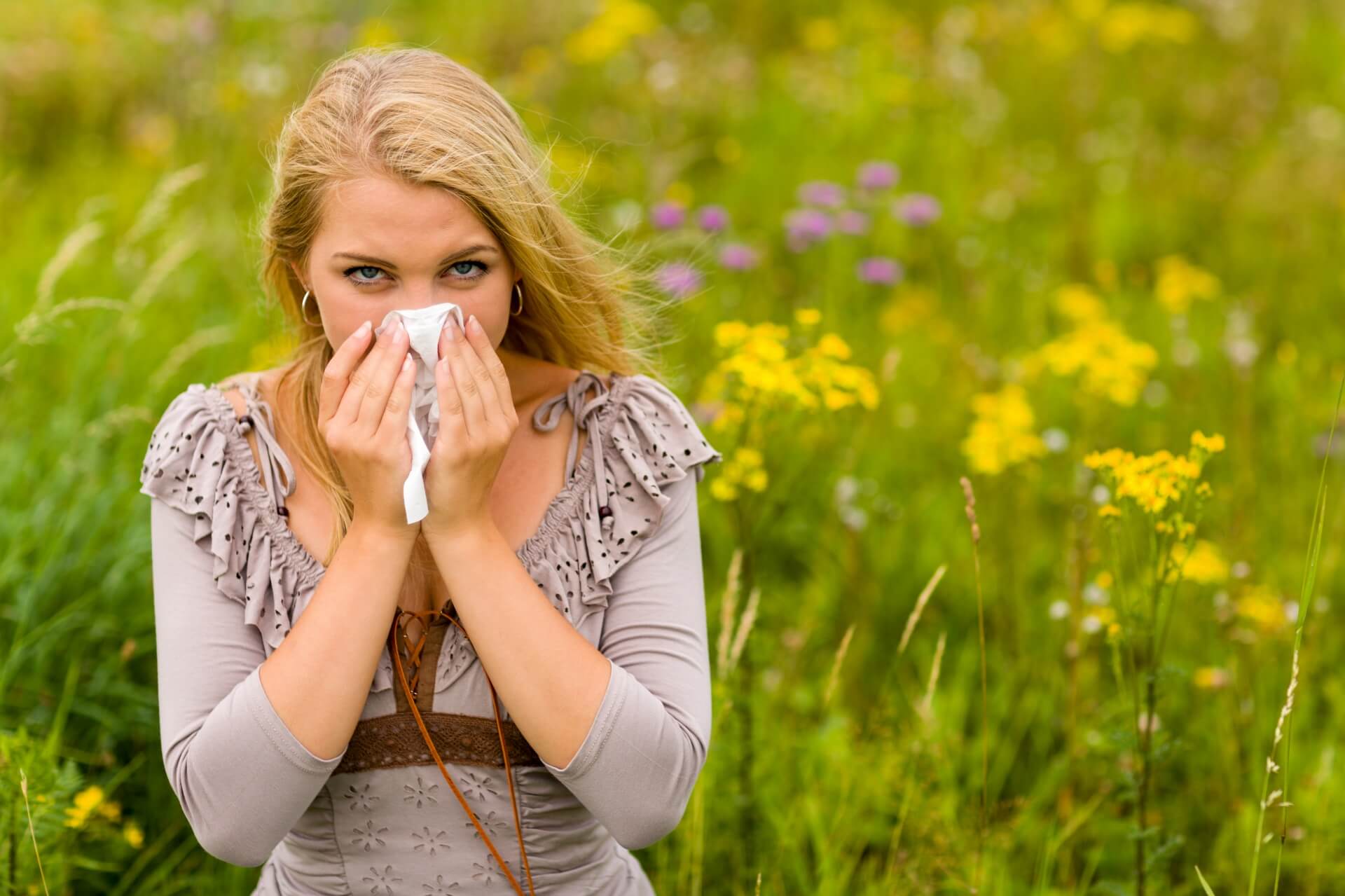
Bermuda Grass Allergy – Symptoms and Treatment
Bermuda grass is tropical and subtropical grass used worldwide to enhance lawns. A prolific grass species, Bermuda grass has spread beyond its intended borders just about everywhere it has been introduced. Tolerant of heat and drought, the grass’ beauty and resiliency make it popular. Bermuda grass also causes a range of allergy symptoms in those allergic to it.
Grass pollen is almost impossible to avoid if you go outside in the spring or summer. Bermuda grass contributes an immense amount of pollen to the overall pollen load throughout its growing season. If you live in an area with a lot of Bermuda grass and are allergic to it, chances are very good you suffer from one of its many symptoms.
Bermuda Grass Allergy Symptoms
Yes, there is testing for grass allergies, including Bermuda grass. The diagnosis of grass allergy can involve two types of tests: a skin pricking test and/or an IgE blood test. An allergist performs both of these tests. The symptoms are wide varying and can be different for every afflicted person. The best way on your own to determine if you are allergic to Bermuda grass is to check the pollen count on days when your symptoms are particularly bad. If Bermuda grass pollen is abnormally high, you know you probably are allergic to it.
Symptoms of a Bermuda grass allergy include, but are not limited to:
- Runny nose
- Coughing
- Wheezing
- Congestion
- Sneezing
- Itchy eyes
- Watery eyes
- Throat “tickle”
- Scratchy throat
- Rash
- Asthmatic symptoms
- Activated Asthma and breathing issues
- Tightened throat
- Sinus pain
- Headache
- Feeling of fatigue
- Hives in rare instances
Symptoms of a Bermuda grass allergic reaction can range from very slight to severe. One aspect of all grass allergies is that they are difficult to pin down because they can change. A Bermuda grass allergy, for example, can migrate into other symptoms and moderate if pollen counts change. Additionally, new symptoms can occur at the next exposure.
For minor symptoms, an over-the-counter allergy medicine might alleviate any discomfort. More serious symptoms require more invasive approaches.
Causes of Bermuda Grass Allergies
Allergies happen when your immune system responds to something it considers foreign to the body. The foreign substance can be pet dander, pollen, some odors, certain venoms, foods, etc. Your immune system develops antibodies for these foreign substances, whether they are harmful to you or not. When exposed to these substances, your body reacts with various symptoms.
The response is inflammatory and designed to destroy the invading substance. In most cases, an allergic reaction occurs in your nose, eyes, and lungs.
The cause of Bermuda Grass allergies is pollen. The peak pollen period for Bermuda grass is from early summer through mid-autumn, but in warmer locales, the grass can create pollen all year long. The reaction to Bermuda grass pollen can range from barely noticeable to almost feeling like you have the flu, depending on the severity of your body’s immune response.
Where Is Bermuda Grass Found?
Bermuda grass is one of the most popular grasses in the world. Originally from Africa, it has spread to Europe, Asia, North and South America, Australia, and Antarctica (yes, Antarctica!)
There are a few reasons for its spread:
Resiliency
Bermuda grass can grow in wet, dry, hot, and cold environments and everything in between. It grows in swamps, deserts, on mountains, and in sand or dirt. It is so tenacious that it can grow when exposed to chemicals that kill other grasses.
Heat and Drought Have No Effect
Bermuda grass grows quickly in wet or dry climates with frequent or infrequent rainfall. The grass’ tolerance to heat and its ability to live without much water make Bermuda grass popular throughout the world. Bermuda grass is the “go-to” grass for areas that go long periods without water.
Popular With Homeowners
Bermuda grass also requires very little in the form of maintenance. It thrives in cities, suburbs, and rural areas. Bermuda grass also grows very quickly and will spread faster than most grasses, even on plots that are little more than a thin layer of dirt.
Additionally, Bermuda grass is renowned for growing in areas where other grasses will not grow or only grow slowly. The grass’ pervasiveness makes it popular with many homeowners who are looking for a low maintenance grass they can plant and forget about and will still look good.
Grass Pollen Travels Well
All grass pollen is light and can travel for long distances. The only influence that drags it down is moisture. In most cases, though, moisture means grasses grow fast and produce more pollen that can travel easily for long distances.
Many allergies have a short lifespan. You may feel them mid to late spring through early summer. A Bermuda grass allergy, however, can last until early fall, and in some places, Bermuda grass produces pollen almost all year long.
Because of that, you may never get a break from your allergy symptoms without professional treatment.
Foods to Avoid
Common plant foods to avoid to minimize Bermuda grass allergy include:
- Melon
- Watermelon
- Citrus
- Banana
- Pineapple
- Persimmon
- Zucchini
- Tomato
- Hazelnut
- Peanut
Diagnosis and Treatment of Bermuda Grass Allergies
Fortunately, grass allergies are simple to treat once it is determined that is what is causing a patient’s symptoms. If you think you may be allergic to Bermuda grass or any other type of grass and over-the-counter medication is not helping you, help is a phone call away.
Our staff at Frontier Allergy and Asthma and Immunology are trained, experienced and renowned for providing patients with effective allergy relief. During a visit with us, your allergy specialist will review your medical and family history, perform a physical examination and recommend an allergy testing program that will identify what is causing your allergic symptoms.
If you get diagnosed with an allergic reaction to grass, Bermuda, or otherwise, your allergist will formulate a treatment plan that merges traditional medication approaches with an allergy shot regimen (immunotherapy.) The allergy shot will help you build up a tolerance to the specific causes of your allergies. The two-pronged treatment approach gives you immediate and long-term relief.
Next Steps
If you feel further discussion about your allergies, treatment of symptoms, and longer-term treatment approaches are in order, Dr. Neha Reshamwaia is happy to assist you. She will answer any of your questions and help devise a treatment plan that will bring you relief.
Please contact us at Frontier Allergy and Asthma and Immunology by phone at (512) 535-2655, via email at clinic@frontierallergist.com or schedule an appointment and get started on your path to an allergy-free life.

Written/Reviewed by: Dr. Neha Reshamwala
NPI number: 1780874578
Page last reviewed: 04/02/2025


 All blog posts
All blog posts





